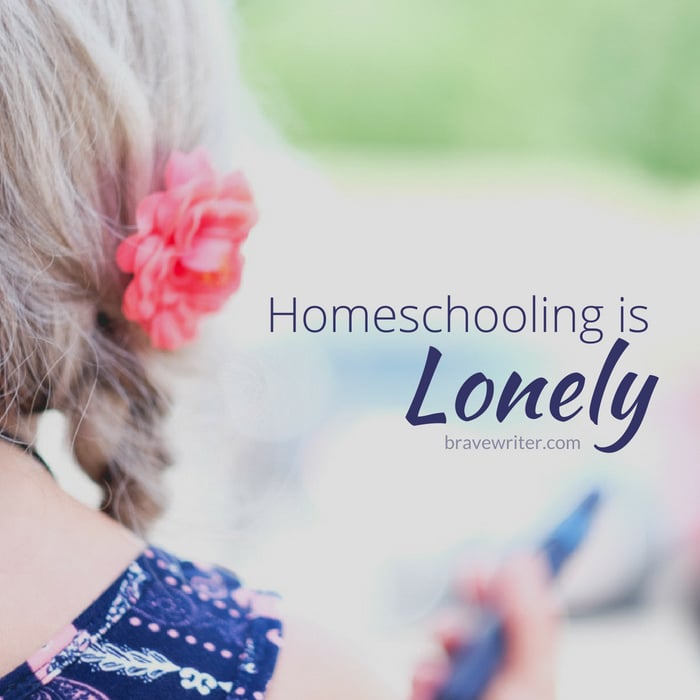Homeschooling is Lonely

Lonely thoughts: am I doing it right? Doing enough? What if I fail?
Lonely days: you and your kids slogging through, no one entering your house to give you relief, no one else planning a lesson or setting up the art project or supervising PE while you take a break in the teacher’s lounge.
Lonely outings: a field trip of 5—you and your three kids—in a sea of school children and teachers, or alternatively, the only person with kids in tow while people wonder what they’re doing “out of school.”
Lonely self: wanting friends, not sure who will be your friend, wondering how to find them, make them, keep them, coordinate with them, manage the interactions between your kids and theirs, how to fit in when you don’t have the same philosophy or religion or educating style.
It’s a creeping need—at first, the joy of choosing to spend all day every day with your kids is rewarding, fulfilling, and need-meeting. Over time, the craving for adult contact and affirmation becomes profound, powerful, necessary.
The Internet helps—online conversations can tie us together and give us a place to gather—our own water cooler.
Co-ops help—offering a place for parents to chat while kids get instruction you didn’t have to prepare.
Yet it’s more than that.
Underneath the loneliness is this:
a craving to be understood, to be accepted.
Can we say our truths, our worries, our different opinions and still be accepted and known by the other homeschoolers? Can we share about our philosophy of education without it raising suspicion or creating rifts?
And what if you are not in the majority homeschooling community? What if you come from a different faith or no faith? How do you find friends then?
The hardest part of homeschooling for me was the feeling that I had to qualify to be a member of a given group. The rejection, scrutiny, and exclusion I’ve experienced while homeschooling was excruciating and not unique to me. I know homeschoolers who gave up home education because they literally had no options for community involvement.
If homeschooling is going to thrive, it has to expand and include.
If you are a human being, your beliefs will shift over a lifetime. It’s impossible to guarantee that what you believe is true now will remain in the same configuration for the rest of your life. If you home educate, you are examining those beliefs daily (because you are studying, reading, and discussing ideas all day every day).
When we form groups around beliefs, we teach people to pretend. We say that you must deny the part of yourself that is curious or disturbed or doubts in order to retain membership in the community. That kind of group fosters vigilance to uphold a single perspective, where suspicion becomes a mode of operation rather than support and kindness. Suddenly the strictures of the group become more important than building supportive relationships around home education.
The best homeschool friendships weather change—create space to revise, grow, experiment, and explore—in education models, in parenting-styles, in belief systems.
The weakest friendships are built around reinforcing the party-line—and avoiding the discomfort of difference.
The greatest suffering occurs when someone fails to live up to the group’s stated beliefs and is kicked out or shunned or rejected (or is told that their family is now dangerous to others—that one hurt me the most).
We can cure loneliness in homeschool. We do it by building communities that welcome people committed to the daring adventure of bringing education to life for their children. That’s the ground floor of friendship.
Everything else? Fodder for rich conversations over brunch and mimosas at Mimi’s.


















